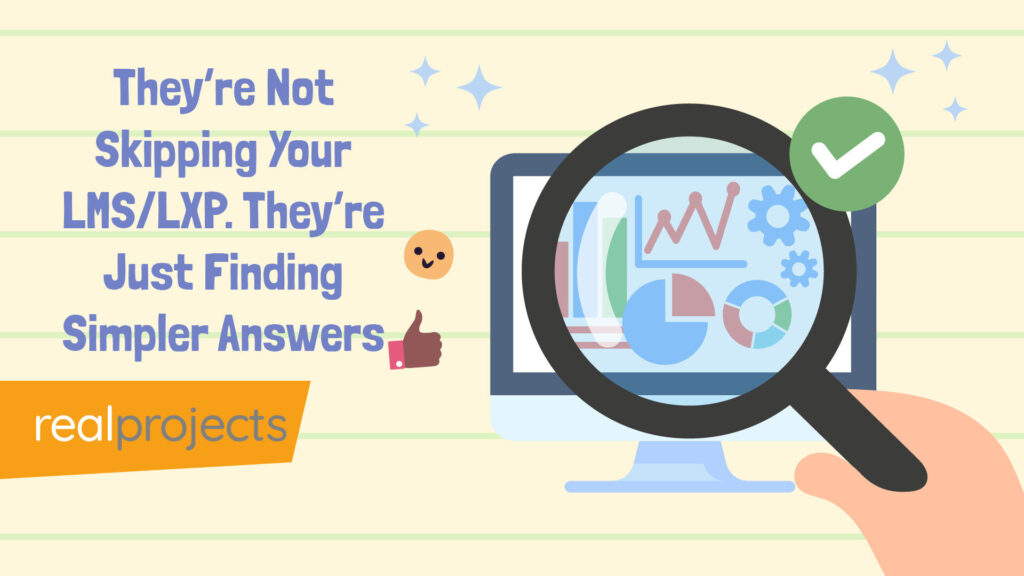Putting together a learning management system involves making some important decisions. One of the biggest is whether to opt for bespoke eLearning or off-the-shelf courses. Both options have a lot to offer an organisation, so it can be a tough choice to make.
To help you decide which one is right for you, let’s take a closer look at each of them in turn and weigh up their pros and cons.
The Pros and Cons of Off-The-Shelf eLearning
Off-The-Shelf eLearning courses have been developed by experts and are ready to be deployed straight away. They’re based on the latest research and industry best practice, so you can be confident they’ll provide authoritative, great-quality training for learners in your organisation. All you need to do is pick the courses which cover your organisation’s training needs and upload them to your system.
Because developers create these courses to supply more than one organisation, they cover a wide range of key topics that are important in the modern workplace. These include industry regulations, digital security, and soft skills such as teamwork, leadership and well-being. The content includes specific information and advice, but is generalised enough that the skills and scenarios will be applicable in a variety of settings.
Courses are kept up-to-date with the latest ideas and practices and new courses are developed as workplaces change and new topics emerge. One significant recent change has been the increase in remote working. At Real Projects, we have created courses designed for organisations adapting to this new way of working, including one on the important topic of digital security for remote teams.
There are many benefits to off-the-shelf courses. They can be deployed quickly to meet your needs, as they’ve already been developed, and are more cost-effective than bespoke courses. A wide range of topics are covered, meaning that you’re likely to be able to find courses that fit the needs of your learners and provide them with expert training.
However, they aren’t always the right option. The content is well-researched and up-to-date, but it might not fit the precise requirements of your organisation. In this case, you can either ask for a modification to an existing course, or it might be better to work with a developer to create a new course. We’ll look at that option next.
The Pros and Cons of Bespoke eLearning
Bespoke eLearning courses are designed to meet the specific requirements of an organisation. You may also sometimes see them called custom or tailor-made courses. They give an organisation complete control over the training they provide to their learners, from teaching specific policies for the workplace to fitting in seamlessly with a company’s branding, tone of voice and values.
Bespoke eLearning developers work collaboratively with the organisation to create courses that fit their exact needs. The client supplies a brief, outlining what they need, including the training goals for the course, details about any policies being taught, as well as any branding, imagery, or other material they want to be included.
The team uses the information provided to create a personalised course, working with the client each step of the way to make sure the work is right. The process is a flexible one and includes the chance for a client to ask for changes to the script and provide input on the visual content.
Some developers will even put together a bespoke team to fit the specific needs of the project. For example, at Real Projects, we assembled a team which included professional analysts from the English Premier League and La Liga when we created tailor-made eLearning courses on data analysis in football for AnalyiSport.
Bespoke eLearning courses are great if your company has particular rules or procedures that staff need to know. They’re also an effective way of providing employee orientation and expressing the values of your organisation. What’s more, your input into the creative process gives you control over the final product.
Sometimes, though, they may not be the right choice. Due to the additional work needed to create them, bespoke eLearning courses are more expensive, despite the best efforts of developers to keep costs down. You will also have to wait for them to be developed, meaning that you’ll be unable to upload them to your learning management system as quickly as an off-the-shelf eLearning course.
Is Bespoke or Off-The-Shelf eLearning Right for Me?
So which is better, bespoke eLearning or off-the-shelf courses? As we’ve seen, both types of courses have a lot to offer and will provide reliable and authoritative content to the learner. There’s no one-size-fits-all option and whichever you go for, you’re going to have a good course.
To pick the type of course that’s right for you, you need to consider both the needs of your organisation and the resources you have available. The ultimate answer will depend on a variety of factors, including the budget you have to spend, your deadline for having the courses uploaded to your system, and whether or not the learning goal is something that is unique to your organisation.
If you want a cost-effective course that you can use straight away and which is based on the latest research and expert advice, one that’s off-the-shelf is most likely to fit your needs. There’s a large range of topics covered, so you’re likely to be able to find the one that fits your needs.
If your organisation needs a course that explains its own specific processes, values, or rules, and you’ve got the budget and time frame to create a bespoke eLearning course, that option is most probably going to suit you better. You’ll have a course that does exactly what you require of it and is tailored to the specific needs of your learners.
Whether you decide to go for a bespoke or an off-the-shelf eLearning course, at Real Projects we are experienced experts at developing both kinds of



